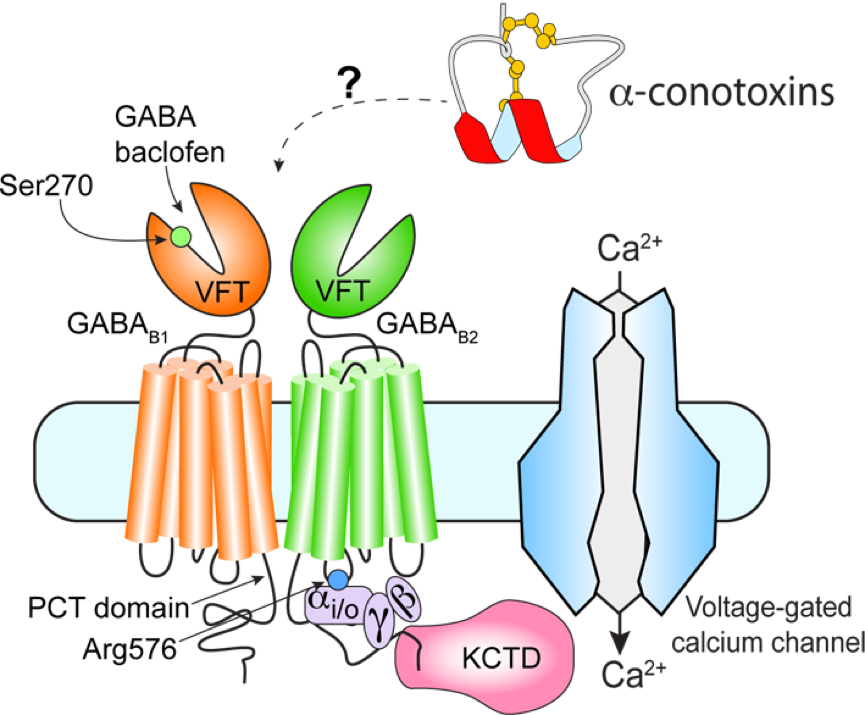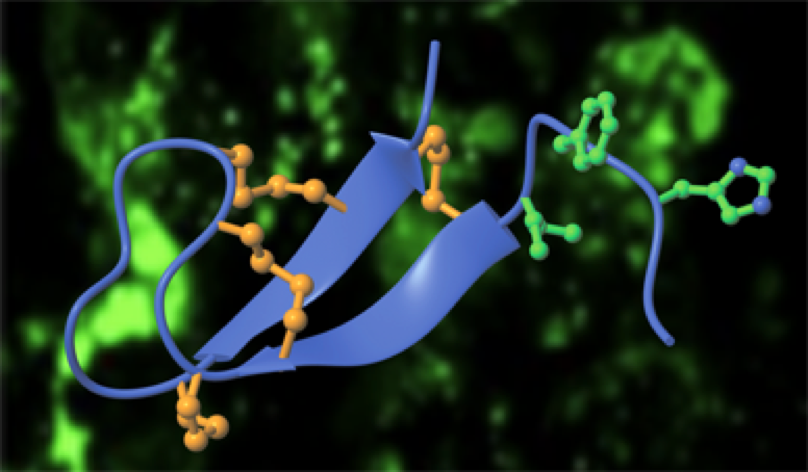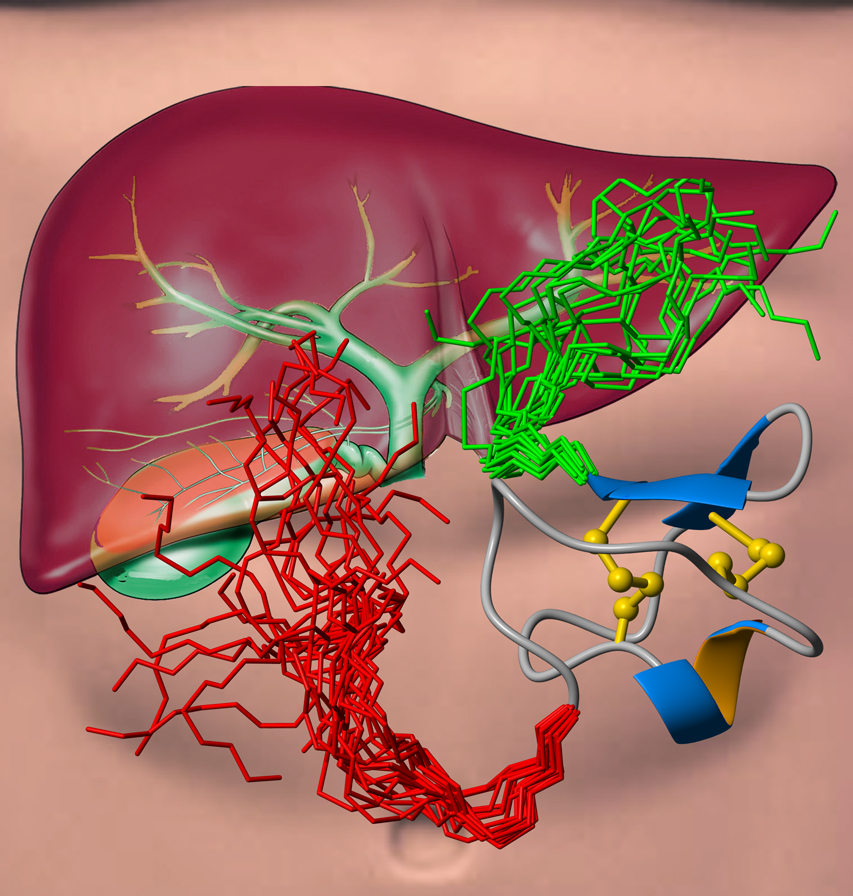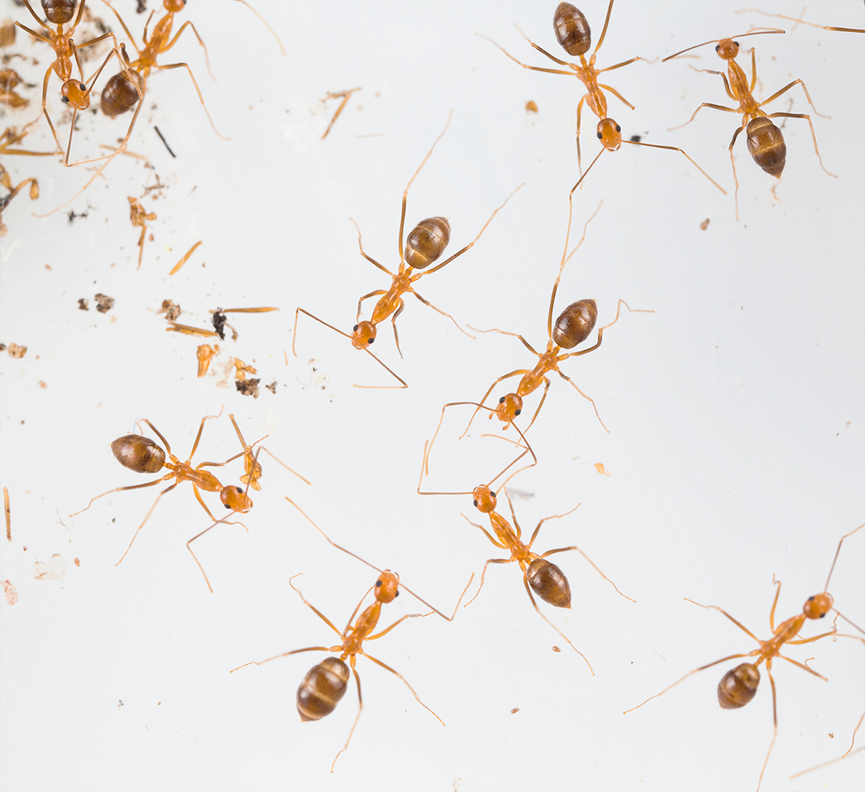Projects - Peptide chemical biology
A selection of the projects that we currently work on are shown below.
A new GPCR target for conotoxins
This project aims to characterise the interaction between conotoxins and the GABA(B) receptor, discover new conotoxins that target this receptor and design new ligands for related receptors that are also involved in nerve signalling. This involves undertaking structure/activity studies, screening venom extracts, mechanistic studies using receptor constructs and assays and functional studies in cell-based systems and native tissue. This will provide us with an intimate understanding of the effect of conotoxins on this novel receptor that will underpin the future development of new drug leads for treating neurological diseases including pain, anxiety, depression, epilepsy and drug addiction.

The design and development of peptides to modulate iron homeostasis
Hepcidin is the major peptide hormone in the body regulating iron levels. There are a number of diseases associated with the dysregulation of hepcidin levels in humans, including haemochromatosis (iron overload) and anaemia (low iron levels). The overall objective of this project is to develop stabilised peptides to modulate iron homeostasis by altering circulating hepcidin levels. These molecules will be potential drug leads for the treatment of iron-related disorders.

New peptide drugs for the treatment of chronic pain
Chronic pain affects up to 1 in 5 Australians and subsequently has a major effect on people’s quality of life and impacts on both the health system and industry. Conotoxins, with their exquisite specificity and potency have recently created much excitement as drug leads for the treatment of chronic pain. For example, the conotoxin MVIIA (also known as Ziconotide or Prialt) has been approved for use in the U.S. and Europe for the treatment of pain and several other conotoxins have entered clinical trials. In addition, a number of conotoxins have played a critical role in dissecting the molecular mechanisms of ion channel and transporter functions in the nervous system. However, like most peptides, their beneficial activities are largely undermined by susceptibility to proteolysis in vivo. This research project seeks to use peptide engineering approaches to greatly improve their bioavailability and resistance to proteolytic degradation while maintaining their full potency.

Discovery and development of peptides for the treatment of inflammation and infection
This project involves the discovery of novel peptides from nature that modulate the immune response to prevent inflammation or infection by pathogens. Using peptide engineering we can modify these leads to understand how they mechanism of action, improve their drug-like properties, and develop therapies that are targeted to one location in the body.

Discovery, synthesis and characterization of novel antimicrobial peptides from insects
Increasing pathogen resistance against commonly used antibacterial drugs is an escalating health threat and there is an urgent need for novel lead molecules to target these organisms. Insects, making up ~80% of all living organisms, are populating a diverse range of ecological spaces and thus have evolved a complex immune system involving numerous antimicrobial peptides. The project seeks to discover novel bioactive peptides from ant species using state-of-the-art techniques such as transcriptome mining combined with mass spectrometry based peptidomics. Solid phase peptide synthesis will be used to generate sufficient amounts of peptides for bioactivity studies and structural characterization. This project is led by Dr Johannes Koehbach.

